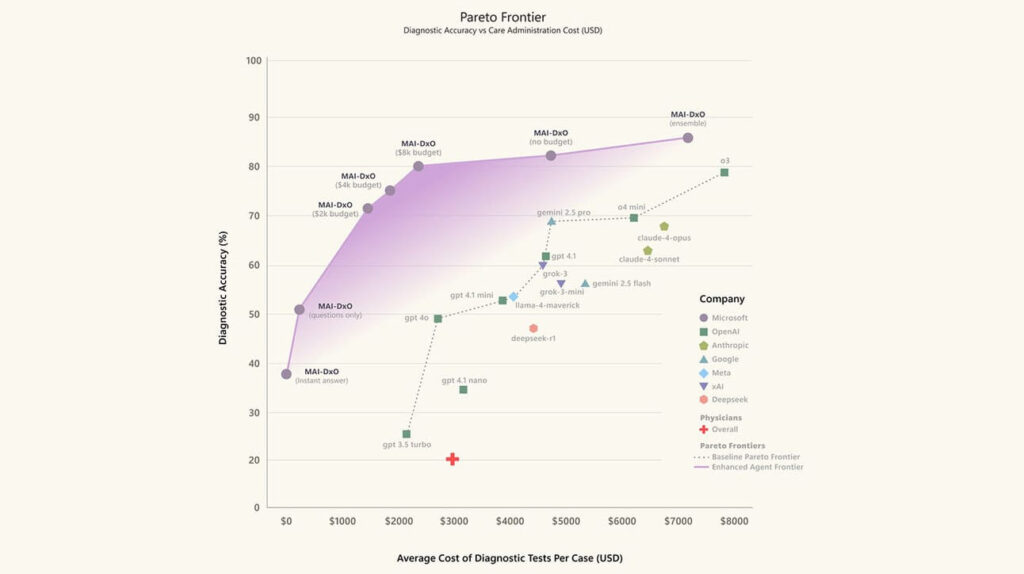Microsoft has unveiled the MAI Diagnostic Orchestrator (MAI-DxO), an advanced AI system that delivers diagnostic results up to four times more accurate than experienced physicians when tackling some of the most complex medical cases. This AI architecture operates like a virtual team of doctors—with specialized agents generating hypotheses, selecting tests, and tracking costs.
The system was tested on a new benchmark dataset called SDBench, which includes 304 highly complex medical problems. Paired with OpenAI’s o3 technology, MAI-DxO achieved an impressive 85.5% accuracy rate. In comparison, a team of doctors with 5 to 20 years of experience achieved just 20% accuracy.
Beyond its precision, the system also demonstrated financial efficiency—MAI-DxO spent an average of $2,397 per case, whereas human doctors spent around $2,963. Fewer unnecessary tests and improved diagnostics are especially relevant in today’s healthcare systems, where simple cases are often over-treated and complex ones go undetected.
With these results, MAI is positioning itself not merely as a diagnostic tool, but as a serious step toward medical superintelligence—the idea that AI could eventually become a central force in clinical decision-making.
In Brief: Tech World Highlights
- China plans to build the world’s first hybrid fusion-fission energy reactor, aiming to produce 100 megawatts of continuous electricity by the end of the decade.
- OpenAI announced the completion of a funding round expected to bring in $40 billion from SoftBank, raising the company’s valuation to an impressive $300 billion.
- Substack has begun rolling out short video previews in a TikTok-style format, following news that creators will soon be able to monetize video content on the platform.
- Apple is preparing a major expansion into healthcare with an enhanced Health app and an AI-powered health coach, codenamed Project Mulberry, expected to launch next year.
- Isomorphic Labs, a drug discovery startup born out of Google DeepMind in 2021, has raised $600 million to further develop its AI-driven drug design platform.
AI Trending Tools:
- Nova Act – Amazon’s agent-based AI search engine for task execution.
- Runway Gen-4 – AI video model with improved consistency and control.
- Camera Motion Concepts – Luma Labs’ tool for simulating advanced camera movements.









